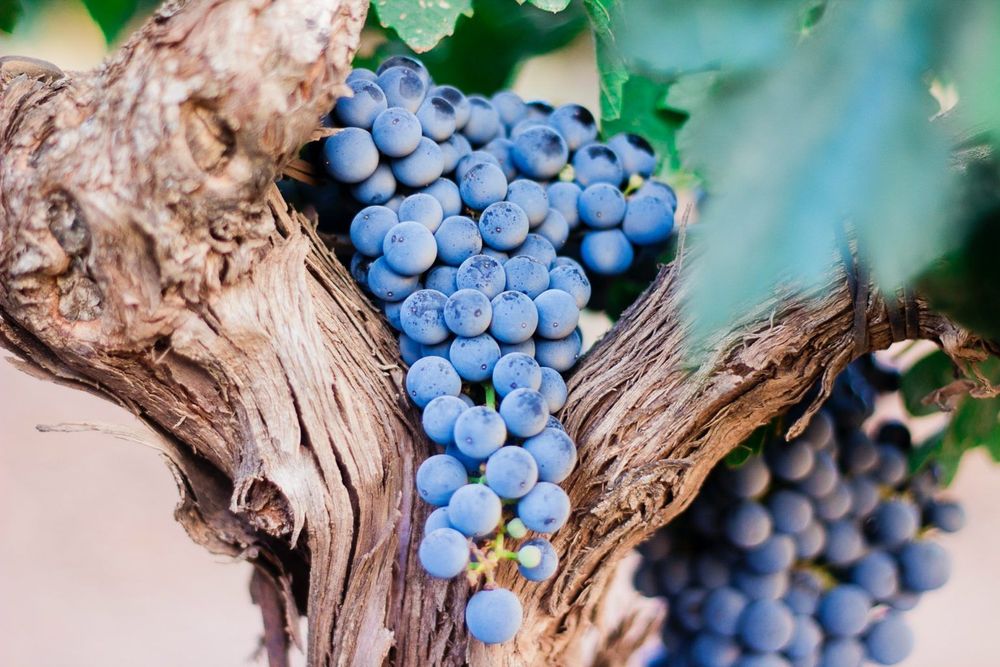
How to Become a Winemaker
Do you love wine? Do you want to learn how to make it? If so, then you're in luck! Winemakers have the techniques and skills required to make this delicious beverage. We'll talk about the education and experience required for this role, as well as the necessary skills. So if you're ready to start making wine, keep reading!
Why Become A Winemaker?
If you're passionate about wine, then becoming a winemaker is a great way to turn your hobby into a career. Not only will you get to work with a product that you love, but you'll also have the opportunity to be creative and express yourself through your wines. And of course, as a winemaker, you'll get to drink a lot of wine!
Other than being involved in the wine making process itself, for some, becoming a winemaker is a family tradition. And for Joe Parrello, it was his grandfather who inspired him to pursue winemaking.
"When I was just a kid, about 8, we moved in with my Grandparents. My grandpa bought grapes from California and made wine. It was called Diego Red. A strong red wine. He was very proud of his wine. Anyone who came to visit got big glass of wine. Good thing there weren’t lots cars and drivers, because this wine set you back on your heels. His smile and affection when he poured a glass of wine for a visiting friend. I wanted to experience this same pride and affections. So I started learning how to make wine, red of course."
Education Requirements
To become a winemaker you need the proper education and experience. A degree in enology, viticulture, or food science may help, but this isn't always required. Many winemakers have a bachelor's degree in another field and receive on-the-job training. However, if you want to advance your career and earn a higher salary, pursuing a degree is a good idea. There are many universities across the country that offer programs in enology and viticulture including many schools in California such UC Davis, Napa Valley College, Fresno State and many more. And if you can't attend school full-time, many schools offer online certificates for more flexibility.
Experience
When it comes to experience, working in a vineyard or winery is a great way to gain the hands-on experience that you need. There are many different positions available in both vineyards and wineries, so you can find one that is a good fit for your skillset and interests. Consider a position helping hands-on with the harvest or assisting the winemaker on staff at the vineyard to learn from a mentor in the field. There are many ways to get started in the industry, so find what works best for you and your career goals.
Skills Needed
The skills that you need to succeed as a winemaker are numerous, but some of the most important ones include:
- An understanding of viticulture and grape cultivation.
- The ability to operate and maintain winemaking equipment.
- Strong problem-solving skills.
- The ability to multitask and manage several projects at one time.
Let's discuss each of these. Starting with having an understanding of viticulture and grape cultivation. This is where it can be helpful to have formal schooling for a deeper understanding. This includes understanding the grapes themselves, which ones are best for certain blends, the climate they need to grow in and more. Without this understanding, it will be difficult to produce high-quality wines.
In terms of being able to operate and maintain winemaking equipment, this is something that you can learn on the job or through formal training. There is a lot of expensive equipment involved in winemaking, so you must know how to use it properly and keep it well-maintained.
Strong problem-solving skills are essential for winemakers because many challenges can arise during the winemaking process. From weather conditions to equipment issues, being able to quickly and effectively solve problems is crucial.
Finally, the ability to multitask and manage several projects at one time is important because there is a lot that goes into making wine. From growing the grapes to bottling the finished product, there are many steps involved and each one needs to be managed effectively. As well as multitasking and managing many different types of wine projects.
Winemaker Norman Banks, expressed that in his own experience the components of a good winemaker include: enjoying the process of learning, knowledge of chemistry and how to care for the wine, as well as "the talent to meet and greet your friends (home wine makers) and the public (wineries), to communicate your enthusiasm and love of your craft, to present the craft and the products in a way that educates them about [the] art and how to consume and enjoy the product."
Getting Started
If you are ready to take those first steps to become a winemaker, the best thing you can do is get started in the wine industry. Check out Work In Wine for wine jobs near you and start the journey into the industry!
Becoming a winemaker takes drive and passion. With the proper education and experience, as well as the necessary skills, you can be on your way to making your own wine in no time. Cheers!
Do you love wine? Do you want to learn how to make it? If so, then you're in luck! Winemakers have the techniques and skills required to make this delicious beverage. We'll talk about the education and experience required for this role, as well as the necessary skills. So if you're ready to start making wine, keep reading!
Why Become A Winemaker?
If you're passionate about wine, then becoming a winemaker is a great way to turn your hobby into a career. Not only will you get to work with a product that you love, but you'll also have the opportunity to be creative and express yourself through your wines. And of course, as a winemaker, you'll get to drink a lot of wine!
Other than being involved in the wine making process itself, for some, becoming a winemaker is a family tradition. And for Joe Parrello, it was his grandfather who inspired him to pursue winemaking.
"When I was just a kid, about 8, we moved in with my Grandparents. My grandpa bought grapes from California and made wine. It was called Diego Red. A strong red wine. He was very proud of his wine. Anyone who came to visit got big glass of wine. Good thing there weren’t lots cars and drivers, because this wine set you back on your heels. His smile and affection when he poured a glass of wine for a visiting friend. I wanted to experience this same pride and affections. So I started learning how to make wine, red of course."
Education Requirements
To become a winemaker you need the proper education and experience. A degree in enology, viticulture, or food science may help, but this isn't always required. Many winemakers have a bachelor's degree in another field and receive on-the-job training. However, if you want to advance your career and earn a higher salary, pursuing a degree is a good idea. There are many universities across the country that offer programs in enology and viticulture including many schools in California such UC Davis, Napa Valley College, Fresno State and many more. And if you can't attend school full-time, many schools offer online certificates for more flexibility.
Experience
When it comes to experience, working in a vineyard or winery is a great way to gain the hands-on experience that you need. There are many different positions available in both vineyards and wineries, so you can find one that is a good fit for your skillset and interests. Consider a position helping hands-on with the harvest or assisting the winemaker on staff at the vineyard to learn from a mentor in the field. There are many ways to get started in the industry, so find what works best for you and your career goals.
Skills Needed
The skills that you need to succeed as a winemaker are numerous, but some of the most important ones include:
- An understanding of viticulture and grape cultivation.
- The ability to operate and maintain winemaking equipment.
- Strong problem-solving skills.
- The ability to multitask and manage several projects at one time.
Let's discuss each of these. Starting with having an understanding of viticulture and grape cultivation. This is where it can be helpful to have formal schooling for a deeper understanding. This includes understanding the grapes themselves, which ones are best for certain blends, the climate they need to grow in and more. Without this understanding, it will be difficult to produce high-quality wines.
In terms of being able to operate and maintain winemaking equipment, this is something that you can learn on the job or through formal training. There is a lot of expensive equipment involved in winemaking, so you must know how to use it properly and keep it well-maintained.
Strong problem-solving skills are essential for winemakers because many challenges can arise during the winemaking process. From weather conditions to equipment issues, being able to quickly and effectively solve problems is crucial.
Finally, the ability to multitask and manage several projects at one time is important because there is a lot that goes into making wine. From growing the grapes to bottling the finished product, there are many steps involved and each one needs to be managed effectively. As well as multitasking and managing many different types of wine projects.
Winemaker Norman Banks, expressed that in his own experience the components of a good winemaker include: enjoying the process of learning, knowledge of chemistry and how to care for the wine, as well as "the talent to meet and greet your friends (home wine makers) and the public (wineries), to communicate your enthusiasm and love of your craft, to present the craft and the products in a way that educates them about [the] art and how to consume and enjoy the product."
Getting Started
If you are ready to take those first steps to become a winemaker, the best thing you can do is get started in the wine industry. Check out Work In Wine for wine jobs near you and start the journey into the industry!
Becoming a winemaker takes drive and passion. With the proper education and experience, as well as the necessary skills, you can be on your way to making your own wine in no time. Cheers!
Like this? Here are some other aritlces you may like

How to Become a Winemaker
Do you want to learn to make wine? Winemakers have the techniques and skills required to make this delicious beverage!

How To Get a Job in the Wine Industry
The wine industry is one of the most lucrative industries today. With a variety of jobs available , it's no wonder that people are looking to get involved!

The Different Sommelier Levels and How to Get Them: What They Mean for Your Career
There are many different levels of sommeliers and each level can have an affect on a person’s career. Let’s talk about each of them.
